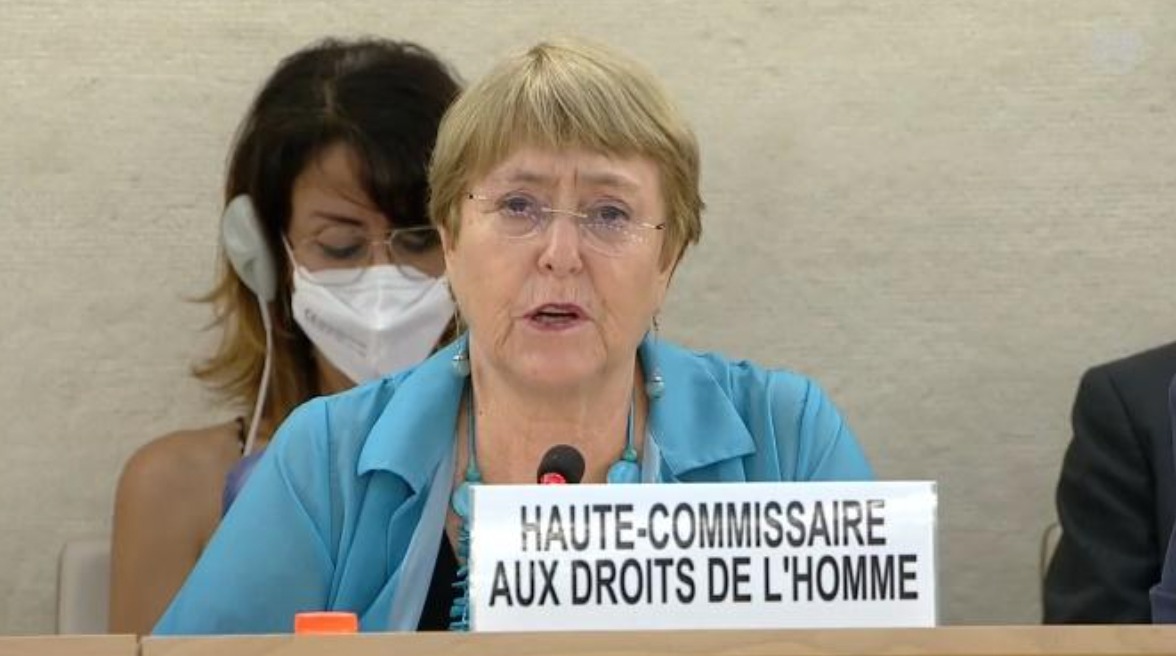HRC50: Mariupol Continuing to Witness Brutal Human Rights Violations Stemming from Russian Occupation
By Conall Corrigan / GICJ
 On the 30th of April, the Russian Federation claimed that it had effectively seized control of Mariupol after a protracted conflict against Ukrainian military forces. The conflict exacted a heavy toll on those within the industrial city resulting in the destruction of 90% of residential buildings, 60% of private houses, and other civilian structures including hospitals and schools. On the 16th of June, Ms Michelle Bachelet, High Commissioner for Human Rights, provided an oral update on the situation in Mariupol during an interactive dialogue at the 9th meeting of the 50th Session of the Human Rights Council. She noted that her office has verified the deaths of 1348 civilians within the city, including 70 children. The High Commissioner claimed that between February and April, Mariupol was likely the most dangerous area of Ukraine due to the intensity and extent of hostilities within the city which has left the area “shattered and depleted”.
On the 30th of April, the Russian Federation claimed that it had effectively seized control of Mariupol after a protracted conflict against Ukrainian military forces. The conflict exacted a heavy toll on those within the industrial city resulting in the destruction of 90% of residential buildings, 60% of private houses, and other civilian structures including hospitals and schools. On the 16th of June, Ms Michelle Bachelet, High Commissioner for Human Rights, provided an oral update on the situation in Mariupol during an interactive dialogue at the 9th meeting of the 50th Session of the Human Rights Council. She noted that her office has verified the deaths of 1348 civilians within the city, including 70 children. The High Commissioner claimed that between February and April, Mariupol was likely the most dangerous area of Ukraine due to the intensity and extent of hostilities within the city which has left the area “shattered and depleted”.Throughout the interactive dialogue, most states continued to express concern about the ongoing human rights and humanitarian situation in Ukraine and called on Russia to honour its commitments under international law and commit to the immediate withdrawal of troops.
𝐆𝐞𝐧𝐞𝐯𝐚 𝐈𝐧𝐭𝐞𝐫𝐧𝐚𝐭𝐢𝐨𝐧𝐚𝐥 𝐂𝐞𝐧𝐭𝐫𝐞 𝐟𝐨𝐫 𝐉𝐮𝐬𝐭𝐢𝐜𝐞 (𝐆𝐈𝐂𝐉) condemns Russian aggression within Mariupol and throughout Ukraine as a whole. The indiscriminate and disproportionate attacks carried out by Russian armed forces and affiliated armed groups represent a direct threat to the right to life of citizens in Ukraine and greatly undermine the object and purpose of the UN Charter.
HRC50, Ukraine, Mariupol, Ukraine Russian war, aggression, occupation, International humanitarian law, Interactive dialogue, geneva4justice, GICJ, Geneva International Centre For Justice, Justice









